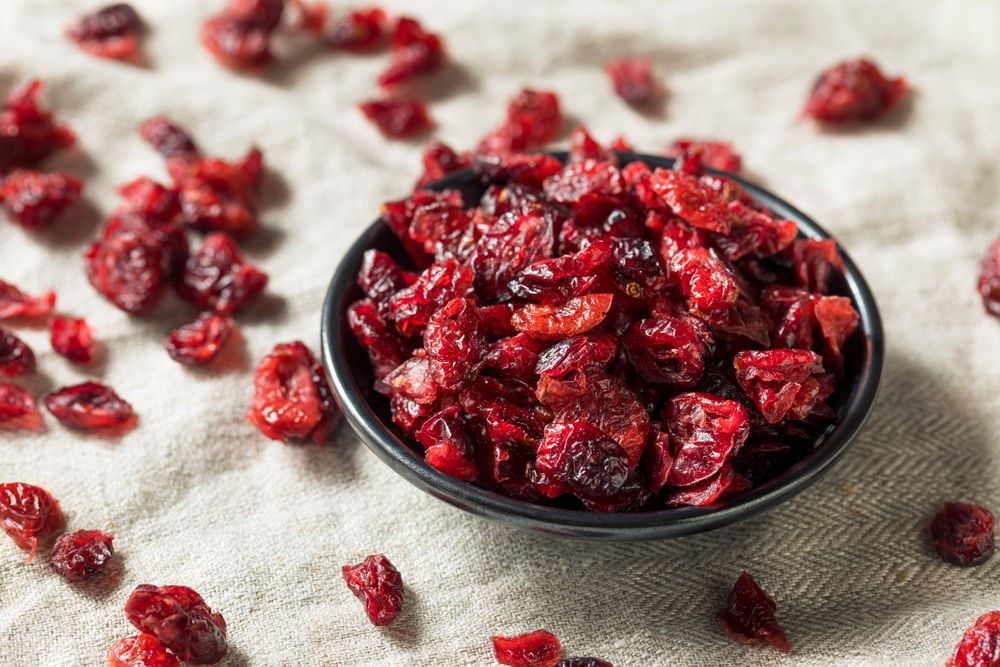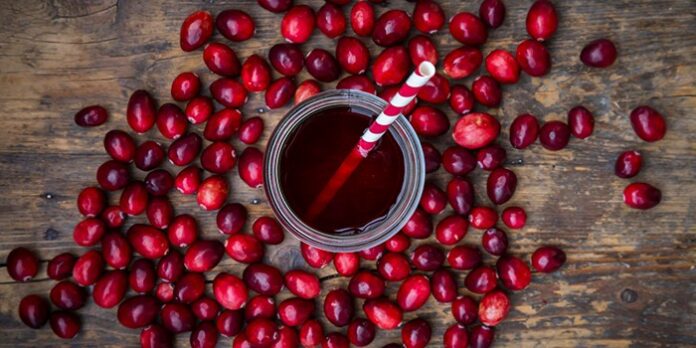Cranberries are packed with nutrients and antioxidants, making them a healthy choice when included in a balanced diet. They can be eaten as whole berries, or people might enjoy them as cranberry juice or sauce.
Originally from North America, cranberries are now grown on about 58,000 acres of farmland in northern parts of the United States, Canada, and Chile.
Because of their rich nutrient and antioxidant levels, many people consider cranberries to be a “superfood.”
What are cranberries?
Cranberries are small, round, and dark red berries that are related to blueberries. Because they have a sharp, sour flavor, most people don’t eat them raw. Instead, they’re usually enjoyed dried or as juice.
Cranberries grow on plants that look a bit like strawberry vines. Most cranberries come from North America or eastern Europe, though they can be grown in the UK if the conditions are right. They are harvested in the fall, between September and November, and you can find fresh cranberries in UK stores from October to December.
Nutritional profile of cranberries
An 80g serving of fresh cranberries contains:
- 12 kcal / 52 kJ
- 0.3g protein
- 0.1g fat
- 2.7g carbohydrates (all of which are sugars)
- 3.2g fiber
- 76mg potassium
- 10mg vitamin C
Both fresh or frozen cranberries (80g), dried cranberries (30g), or a 150ml glass of unsweetened cranberry juice count as one of your five-a-day. However, only one glass of juice will count towards your daily intake, no matter how much more you drink.

ALSO READ: 6 Health Benefits of Mango Leaves
Are dried cranberries healthy?
Dried cranberries still provide good amounts of fiber, vitamins, and minerals, though they have slightly fewer protective antioxidants compared to fresh cranberries. However, many brands add extra sugar to dried cranberries to improve their taste, so it’s important to watch out for that.
Is cranberry juice healthy?
Cranberry juice is a popular way to consume cranberries, but it contains less fiber and fewer antioxidants than the fresh fruit. It may also have added sugar or sweeteners, and since it’s a juice, it’s a source of “free sugars”—the kind we’re advised to limit. Fresh or frozen cranberries are generally healthier choices than juice.
7 health benefits of Cranberries
1. Rich in antioxidants
Cranberries are packed with plant compounds that act as antioxidants, mostly found in the berry’s skin. However, some of these antioxidants are lost during the juicing process.
2. May help prevent UTIs
Cranberry juice is well-known for helping prevent urinary tract infections (UTIs). This is due to compounds called pro-anthocyanidins, which may prevent harmful bacteria like E. coli from sticking to the bladder and urinary tract. While cranberry juice may help stop UTIs from happening, it’s less effective once an infection has started. If you’re drinking cranberry juice for UTI prevention, choose 100% unsweetened juice.
3. May have anti-aging properties
Cranberries are rich in pro-anthocyanidins, which may help protect against skin aging and cognitive decline. Though most research has focused on cranberries’ effects on urinary health, there is potential for these compounds to support skin and brain health. More studies, especially in humans, are needed to confirm these benefits.
4. May promote skin health
Cranberries provide carotenoids like beta-carotene, which the body turns into vitamin A. Vitamin A supports healthy skin, eyes, and the immune system. Cranberries also contain lycopene, which may protect the skin from UV damage.
5. May support heart health
Some studies show that regularly consuming cranberry juice or extracts may improve heart health by balancing cholesterol levels, lowering blood pressure, and reducing homocysteine—a compound linked to blood vessel damage. However, not all studies agree on these findings.
6. May reduce the risk of stomach ulcers
Cranberries contain compounds that may reduce the risk of stomach ulcers and stomach cancer caused by Helicobacter pylori bacteria. These compounds, called A-type pro-anthocyanidins, appear to limit the growth of the bacteria, potentially lowering the risk of stomach-related issues.
7. Has antibacterial properties
In addition to fighting H. pylori and E. coli, cranberries may also help protect against foodborne bacteria like Listeria monocytogenes, which causes food poisoning.
Overall, are cranberries good for you?
Cranberries, whether eaten fresh, dried, or as juice, are a good source of iron, potassium, and vitamin C. They are particularly rich in plant compounds that may help prevent urinary tract infections (UTIs) and boost the immune system. Adding cranberries to a balanced diet can offer valuable nutritional benefits.



